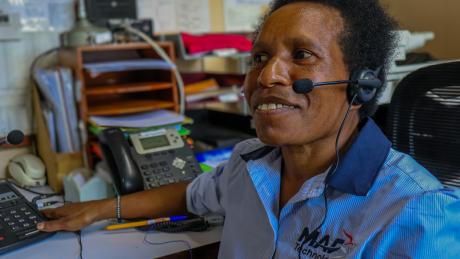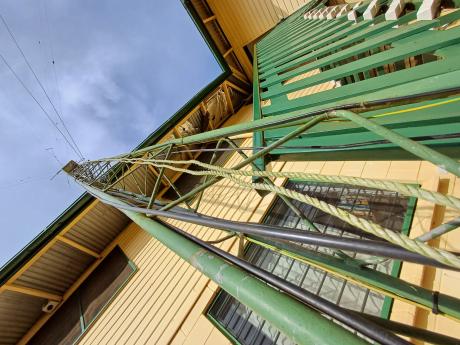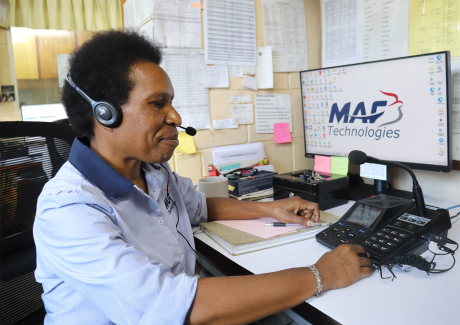
In the remote highlands and swampy lowlands of Papua New Guinea, where isolation can be fatal, Justina Martin is a radio operator for MAF Technologies. She stands as a lifeline, proving that a single radio call can mean the difference between survival and tragedy.
Story by Samuel Gnanadurai and Matt Painter
“My life is so happy, I’m helping people and saving lives,” said Justina Martin, who monitors the High Frequency (HF) radio at MAF Technologies in Goroka, Eastern Highlands.
Justina is the main voice of MAF Technologies. Her callsign, ‘Alpha eight-nine-nine’, represents the lifeline that hundreds of Papua New Guinea communities have relied on since the 1950s.
How does someone operating a radio save lives?

“There are remote places that do not have mobile telephone coverage,” said Justina. “People might have to walk for hours to get a signal.”
In such villages the primary mode of communication is HF radio.
MAF Technologies has installed radio in hundreds of these villages. Most of these radios are kept alongside the airstrips. The only efficient mode of transport for many people is a small aircraft.
In times of emergency, for example when a wild pig recently had bitten a woman, the villagers go to the MAF agent. The agent called Justina on the frequency monitored by MAF Technologies.
If the patient needs emergency transportation, as was the case in this instance, the flight operators are informed over the radio about the emergency and an aircraft is flown in. If the patient needs only an assessment, a doctor is called to the radio frequency for long-distance assessments and advice to community health workers.
Even in non-emergency situations, when any person in a village wants to pass on a message to someone in a town, the radio is used, again through the airstrip agent and through MAF Technologies – and in most cases, Justina.
MAF Technologies even provides a ‘phone-patch’ service. A person in the bush can call Justina via HF radio, request that a phone number be dialled on their behalf, and then be connected to a phone call – all through radio.
“I monitor the radio frequency from 7.45 am to 5 pm, but we monitor it 24/7/365 and so other staff pitch in and take turns during weekends and evenings,” Justina said.
Justina’s logbook records 368 calls during 2024. Out of this number, 116 calls were medical evacuations and 69 were medical assessments done over radio.
Six years ago, Justina began working part-time with MAF Technologies, but now serves full time. She is married to Eki and they have two adopted children, aged 19 and 9.

I'm happy. I save lives
“Through God's grace, I have come this far serving with MAF Technologies, to enable people to get help, hope and healing through operating the HF radio.
“I could not complete my school graduation. Violence in my village at that time did not let me complete it. My home was burnt. My parents could not afford to send me to university. It is God's grace that I ended up joining here.
“I'm happy. I save lives,” Justina said.
“I am here to serve, to help. My heart is to help many people in remote places to exist, and that they can receive the light of Jesus in their lives and be saved.”